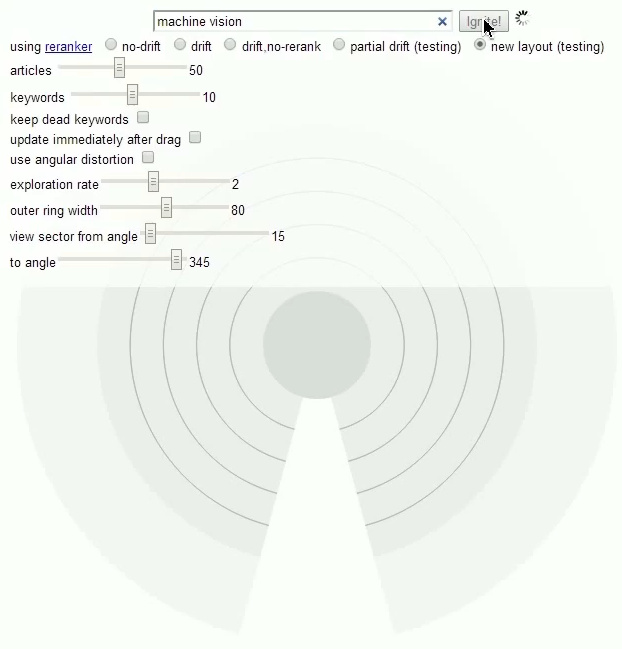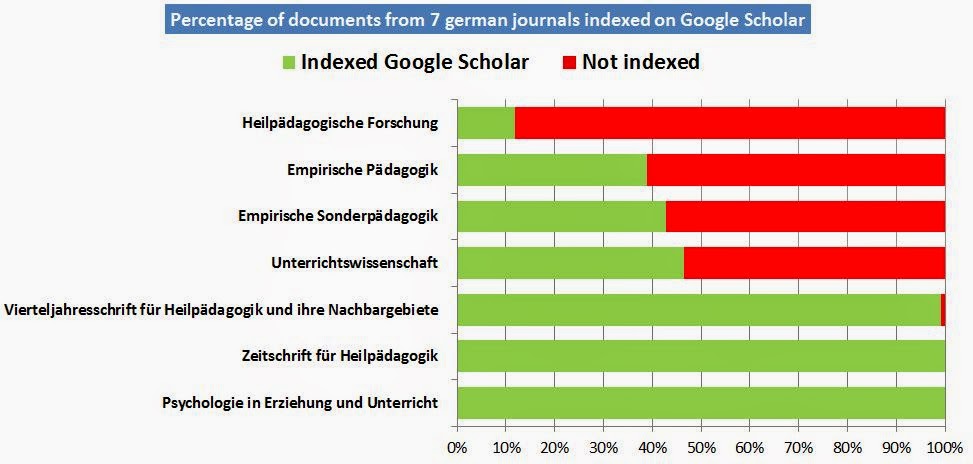Here’s a new group test of academic search tools for open access or otherwise free academic papers. It follows JURN’s recent large number of additions of ecology related sources. Specifically it looks for recent (2013-) work in a rapidly developing and important niche of marine science. The plastic-biodegrading microbes that live on the “plastisphere” (tiny sub-5mm fragments of plastic now found throughout much of the world’s oceans, in the surface layers or also embedded in seabed silt). At a pinch, I have sometimes accepted relevant recent work on oil biodegrading bacteria living in the oceans, when it seems to suggest mechanisms or pathways. None of these marginal acceptances occurred in JURN’s results, though, so this gives other search tools an advantage.
JURN group test: marine microplastic biodegradation
January 2015. Searching for free full-text scientific articles, theses, reports or book chapters in English after 2012. Clicked through on possible results and evaluated. |
| DOAJ |
0 |
Used ‘Article’ search. 0 from zero results. |
| Paperity |
0 |
Titles of first 25 results all strongly irrelevant. |
| Microsoft Academic |
0 |
0 from five results. |
| OATD |
0 |
0 from zero results. |
| JournalTOCS |
0 |
0 from zero results. |
| Ingenta Connect |
0 |
0 from one result. The one result was 2011’s initial paper “Interactions Between Microorganisms and Marine Microplastics: A Call for Research”, which proved to be paywalled at $28. |
| Journal Seek |
0 |
0 from zero results. |
| Journal Click |
0 |
The top result looked promising, the major report Microplastic Litter in the Dutch Marine Environment, but mentions of biodegradation were found to be very fleeting. One article from GEOMAR required a Logon. Several results proved to be from allegedly predatory or suspect publishers. Two further prominent results were on tests for bioaccumulation of pollutants in estuary lugworms. After the first eight results, results appeared to lack focus on marine life. |
| OAlib |
0 |
First result not relevant and proved, on clickthrough to full-text, to be “404 not found”. Second result’s full-text was from a completely different paper! The first page of results were all, anyway, from 2012 or earlier. |
| Digital Commons Network |
0 |
I switched out of the Arts and Humanities section for this search. Had one result, not relevant. A simpler keyword search for | marine microplastic | gave only six results, none relevant. |
| BASE |
0 |
One result, a 2014 thesis on the highly polluted North Sea that found that 5% of 290 gut samples from North Sea fish had ingested some microplastic, rising to 18% in mackerel. And yet… “No direct [health] effect could be recorded in individuals that had ingested microplastics”. But since there was no analysis of microbial degradation of the microplastic, the thesis was discounted. |
| Mendeley |
1 |
Searched ‘Articles’ only, then filtered for Open Access articles only. Three possible titles were investigated in the first 25 results, all from near the top of the first page. One was found to be on methods to determine microplastic ingestion in larger organisms. Another was on microplastic distribution patterns across the eastern Pacific. The third explored microbial success in breaking down petroleum hydrocarbons in the ocean through complex “interactions between bacteria, fungi and microalgae” in micro ecosystems. This suggests there is some division-of-labour going on among these organisms as they break down things like plastics. The latter result was judged to be on-topic enough to count as a result.
|
| CORE |
1 |
Filtered search by English language, full-text only, and set date slider to 2012-2014. Looked at first three pages of results. One 2014 PLOS paper was tangentially on-topic, concluding that “microorganisms indigenous to Arctic seawater are capable of performing extensive biodegradation of chemically and physically dispersed oil at … -1°C”, and this was counted as a result. A 2013 PhD thesis discussed how lab studies could be extrapolated to rivers, reporting that “groups of PNP-degrading bacteria were detected” in samples from the River Dene in England. Though interesting, this paper was not counted as it was not about the oceans and the bacteria were not the focus. |
| OpenAIRE |
1 |
Filtered for ‘English language’ | ‘Open Access’ | 2013 and 2014. Checked first page of results for each year. Top results in 2013 were mostly items previously encountered and discounted. One interesting 2013 paper from India found marine bacteria rapidly degraded the ‘sunset yellow’ dye pollutant released from textile industries, but the paper was discounted because it was not about plastics. The 2014 results had many papers about cleanup of oil spills by microbial life, as the oil rapidly photo-oxidises under sunlight to other substances. The paper “The metabolic pathways and environmental controls of hydrocarbon biodegradation in marine ecosystems” had enough on-topic discussion to be counted. 2014’s PLOS paper “Plastic Pollution in the World’s Oceans”, although a good survey of the world’s plastisphere problem, had only a very fleeting mention of biodegradation, thus: “bacterial degradation [may] also contribute to the removal of small microplastics from the sea surface” |
| Google Search |
1 |
Used a Web browser not signed in to Google. I had to force verbatim on “biodegradation” to get useful results. Examined first 30 of those results. Only one was post 2013 and free, “Life in the ‘Plastisphere’: Microbial Communities on Plastic Marine Debris” (2013). |
| Google Scholar |
3 |
Checked first page of results, most were from pre 2013. The first page of results did however surface the paper “Millimeter-sized marine plastics: a new pelagic habitat for microorganisms and invertebrates”, which presented evidence that bacteria are pitting and grooving on a range of ocean microplastics. This important paper became result No.2, after I switched to results “Since 2014” (there was no “Since 2013” option). The important comprehensive overview paper “The present and future of microplastic pollution in the marine environment” (2013) was also found to be available free in the “Since 2014” results. As was 2014’s “Rapid bacterial colonization of low-density polyethylene microplastics in coastal sediment microcosms”. |
| OPENDoar |
3 |
Examined first 20 results. Showing up on the first page were: “The spectroscopic detection and bacterial colonisation of synthetic microplastics in coastal marine sediments”; “Rapid bacterial colonization of low-density polyethylene microplastics in coastal sediment microcosms” and “Millimeter-Sized Marine Plastics: A New Pelagic Habitat for Microorganisms and Invertebrates”. Many later results were from before 2013. |
| JURN |
6 |
Tested without keyword forcing (Google switches biodegradation to degradation) so as to be fair to OPENDoar, but still had good results. The list of the first 20 results is given below. Keyword forcing using “biodegradation” simply gave very similar results in a different order. |
JURN results, first 20 results. No keyword forcing.
Search for | marine microplastic biodegradation |
1. OUT OF DATE RANGE. Laboratory Test Methods to Determine the Degradation of Plastics in Marine Environmental Conditions (2012)
2. Isolation of microplastics in biota-rich seawater samples and marine organisms (2014)
3. Microplastic pollution in deep-sea sediments (2013)
4. OUT OF DATE RANGE. The spectroscopic detection and bacterial colonisation of synthetic microplastics in coastal marine sediments (2012)
5. High-levels of microplastic pollution in a large, remote, mountain lake [in Mongolia] (2014)
6. VALID. Life in the Plastisphere: Microbial Communities on Plastic Marine Debris (2013)
7. Isolation of microplastics in biota-rich seawater samples and marine organisms.
8. VALID. CIESM Workshop Monographs, No.46: Marine litter in the Mediterranean and Black Seas (2014). Contains three full-text papers: “Bacterial degradation of synthetic plastics” and “Microbial biodegradation of synthetic plastic polymers: state of the art and perspectives from the BIOCLEAN project” and “Surface properties of marine microplastics that affect their interaction with pollutants and microbes”. But this was counted as a single result.
9. Proceedings of the GESAMP International Workshop on microplastic particles as a vector in transporting persistent, bioaccumulating and toxic substances in the oceans (2010)
10. VALID. Rapid bacterial colonization of low-density polyethylene microplastics in coastal sediment microcosms (2014)
11. VALID. Millimeter-Sized Marine Plastics: A New Pelagic Habitat for Microorganisms and Invertebrates (2014)
12. VALID. The plastic-associated microorganisms of the North Pacific Gyre (2013)
13. VALID. Plastic Degradation and Its Environmental Implications with Special Reference to Poly(ethylene terephthalate) (2013)
14. VALID (BUT DUPLICATE). Rapid bacterial colonization of low-density polyethylene microplastics in coastal sediment microcosms (2014)
15. Monitoring the abundance of plastic debris in the marine environment (2009)
16. Plastic Pollution in the World’s Oceans: More than 5 Trillion Plastic Pieces Weighing over 250,000 Tons Afloat at Sea (2014)
17. Marine litter within the European Marine Strategy Framework Directive (2013)
18. Plastic Pollution in the World’s Oceans: More than 5 Trillion Plastic Pieces Weighing over 250,000 Tons Afloat at Sea (2014)
19. Leaching of plastic additives to marine organisms (2013)
20. Environmental implications of plastic debris in marine settings (2009)
Google News once again proved a somewhat useful source even without any keyword forcing, surfacing a manageable number of useful topical articles from as far back as 2013, such as:
* Fate of ocean plastic remains a mystery (Nature.com)
* Microscopic diatoms with taste for marine refuse could help clean up (South China Morning Post, reporting research).
* Microscopic creatures could be helping reduce marine garbage on the ocean (News International, reporting research).
However News also surfaced simplistic (and in most cases wrong) claims that plastic “doesn’t biodegrade” or never degrades, all in a range of low-grade news sources.



